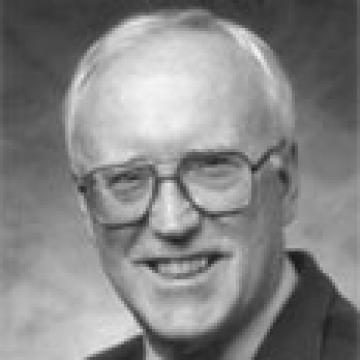Harry S. Truman: Impact and Legacy
When Harry S. Truman left the presidency in January 1953, he was one of the most unpopular politicians in the United States. The Korean War, accusations of corruption in his administration, and the anticommunist red-baiting of McCarthy and his allies had all contributed to the President's poor standing with the public. Truman's reputation, though, began to revive soon after he returned to private life. In part, this was because Americans began to see Truman as a feisty everyman from "Middle America" rather than a partisan Washington, D.C., politico.
But Truman's stature also rose in subsequent years because it became easier for both scholars and the public to discern and appreciate his significant contributions. Truman's conduct of American foreign policy deserves special commendation. The President and his advisers recognized that the Soviet Union threatened the political and military balance of power, as well as the healthy economic intercourse, that favored the United States and its allies in the aftermath of World War II. Truman responded to the Soviet challenge with a range of political, diplomatic, military, and economic initiatives designed to contain Soviet power and to construct an American-led bulwark against communism. In large measure, American officials followed Truman's approach to U.S.-Soviet relations until the end of the Cold War in the early 1990s. Several Truman foreign policy programs remain central to America's international posture even today. Commitments to Israel and South Korea are still hallmarks of U.S. policy towards the Middle East and Asia, respectively. Likewise, the United States remains the prime member of NATO.
Truman also left his mark on domestic affairs. He oversaw the conversion of the American economy from its World War II footing to one that emphasized both consumer and military production. While not without problems, this transition occurred about as smoothly as possible. Truman protected the New Deal and—with a rise in the minimum wage in 1949 and the enlargement of Social Security in 1950—built upon its achievements. He pushed forward the cause of African-American civil rights by desegregating the military, by banning discrimination in the civil service, and by commissioning a federal report on civil rights. Just as important, Truman spoke out publicly on the matter.
Finally, Truman engineered one of the most unexpected comeback victories in American political history. The dispiriting 1946 mid-term elections that gave the Republicans control of Congress, paired with the prospect of facing an accomplished Republican candidate like New York governor Thomas Dewey, dimmed Democratic hopes for a Truman victory in the 1948 presidential election. Truman, though, campaigned relentlessly and effectively, making congressional Republicans the main issue in the election. He defeated Dewey convincingly in November 1948 when almost no knowledgeable observers gave him a chance.
Some historians do find fault with Truman's record. They argue that Truman too readily accepted Douglas MacArthur's advice in Korea when he should have questioned his commanding general's assessment of Chinese intentions. Other historians point out that Truman's failure to keep politicians and the public more informed about U.S. policy towards the Chinese Civil War, and specifically the administration's reservations about Jiang Jieshi, led to the damaging political firestorm that exploded after Mao's victory. They argue that Truman responded too slowly and weakly to Senator McCarthy and that his support for African-American civil rights was underwhelming. Finally, many historians contend that Truman grievously erred in 1946 and 1949 by advocating liberal initiatives that expanded the welfare state and increased government intervention in the nation's economy for which a conservative polity had no appetite.
While these critiques are not without merit, they underestimate the difficult political circumstances in which Truman found himself. His own party was a composite of different constituencies and was divided grievously between progressives and southern conservatives; his Republican detractors also proved a strong and determined opposition, hungry to win back the White House. Truman therefore had to tread carefully and sometimes cautiously. Viewed in this context, Truman's achievements in both foreign and domestic affairs, where he confronted some of the most difficult challenges any American president has faced, appear even more significant.
